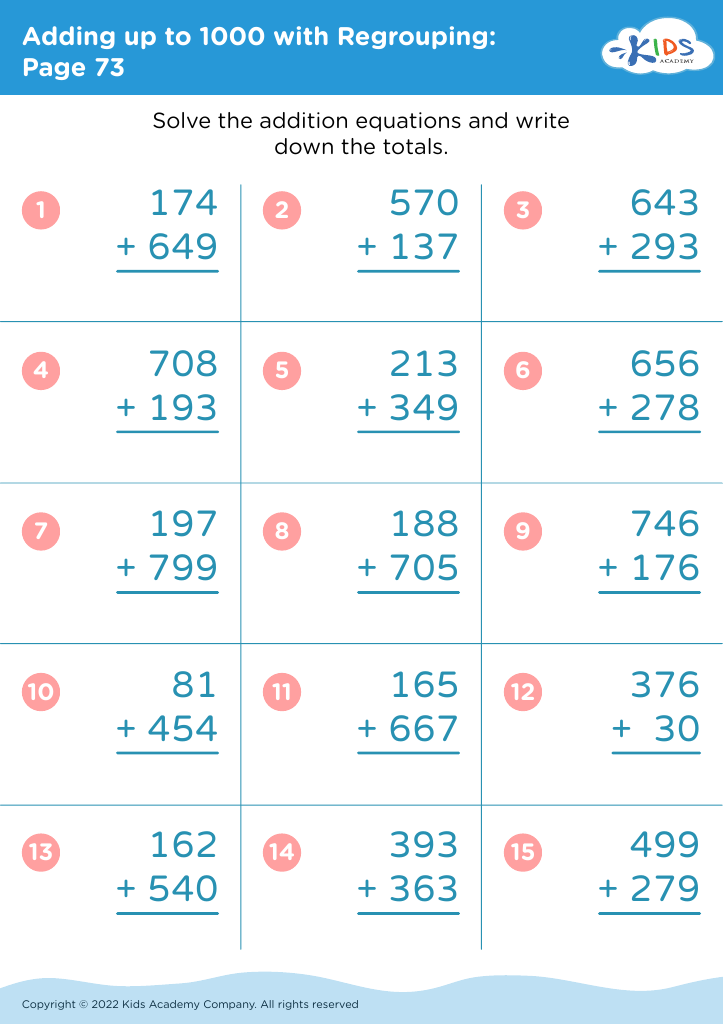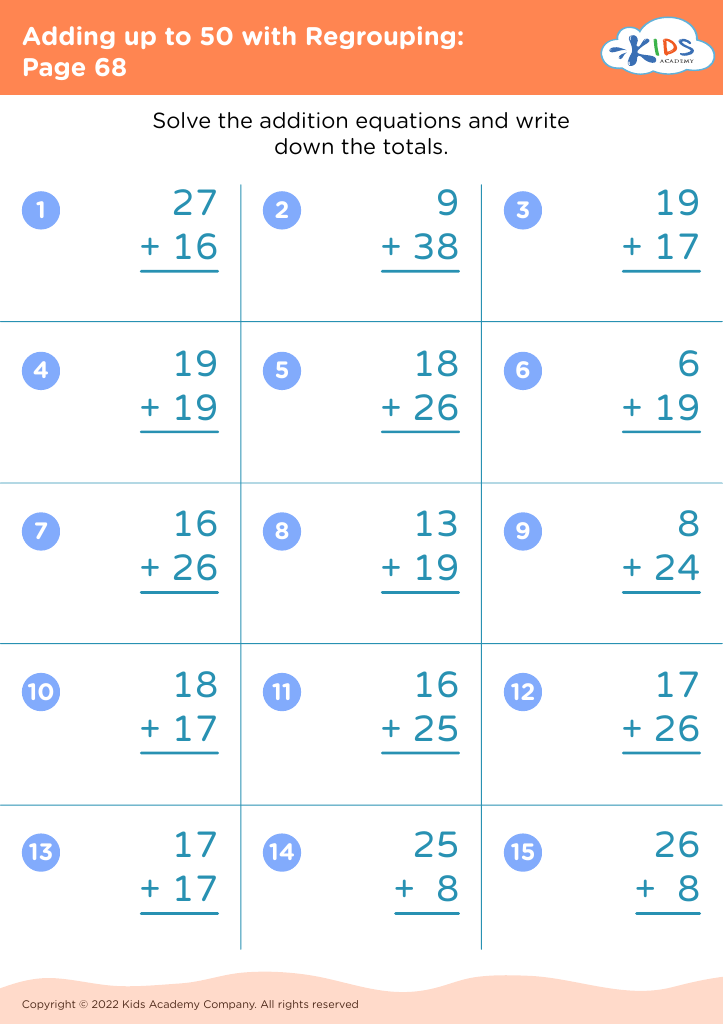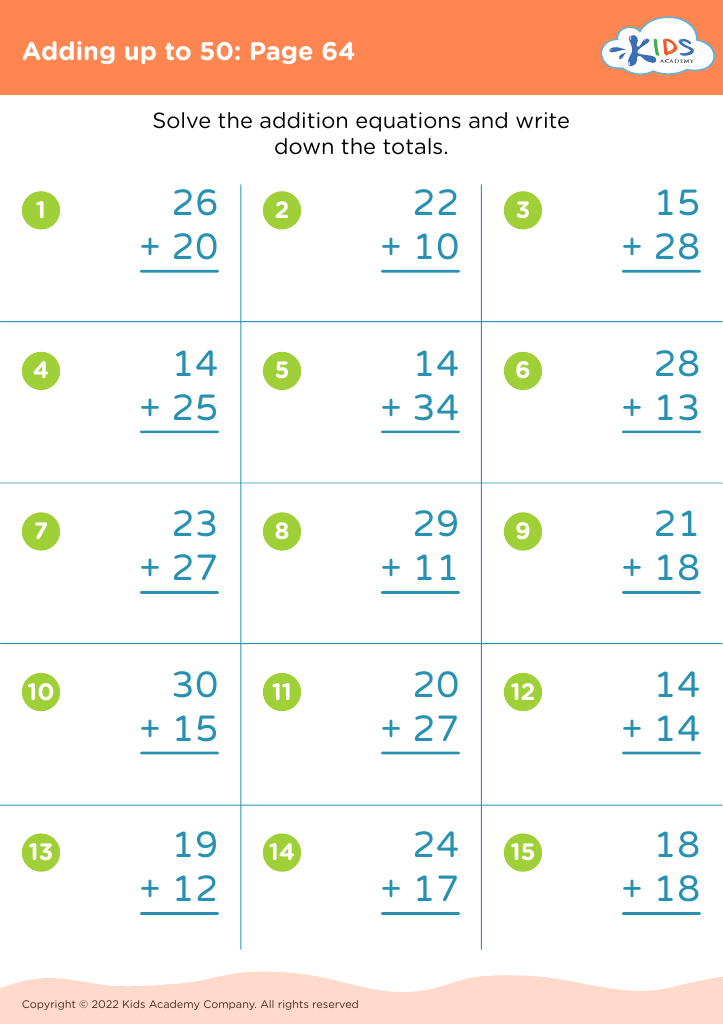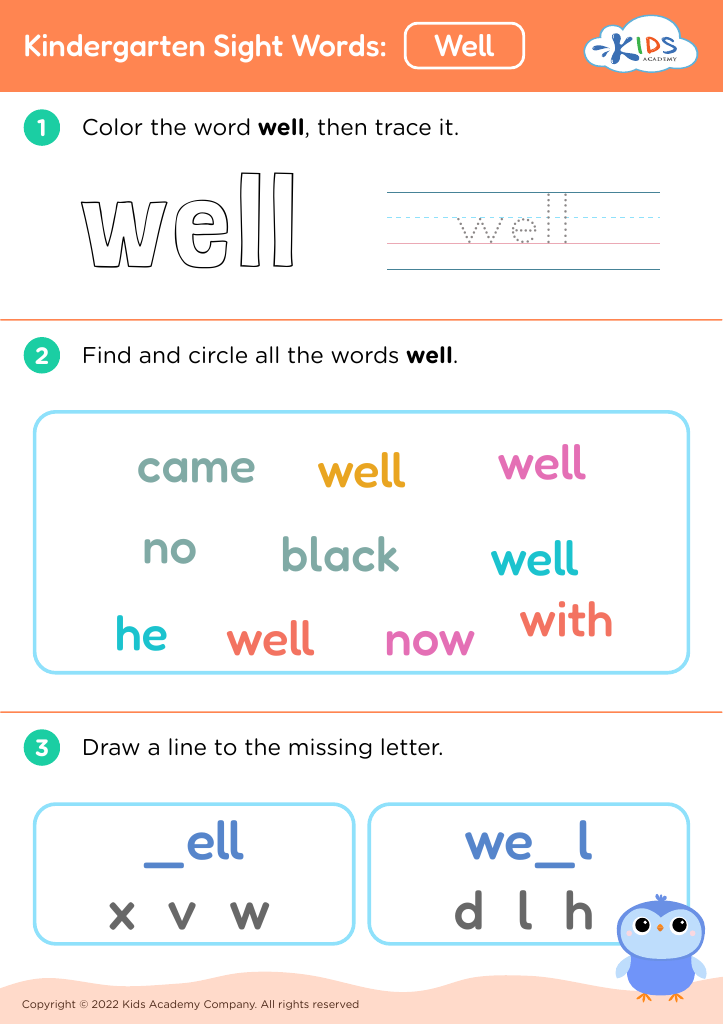Developing logical thinking Worksheets for Ages 6-7
9 filtered results
-
From - To
Discover our engaging "Developing Logical Thinking Worksheets for Ages 6-7," designed to enhance critical thinking and problem-solving skills in young learners. Our printable worksheets feature a variety of fun activities, including puzzles, pattern recognition, and logical sequences, tailored to captivate children while fostering essential cognitive skills. These resources encourage creativity and systematic reasoning, helping learners make sense of the world around them. Ideal for both classroom settings and at-home practice, these worksheets are a valuable addition to any educational toolkit. Boost your child's logical reasoning abilities today and watch them thrive in their learning journey!
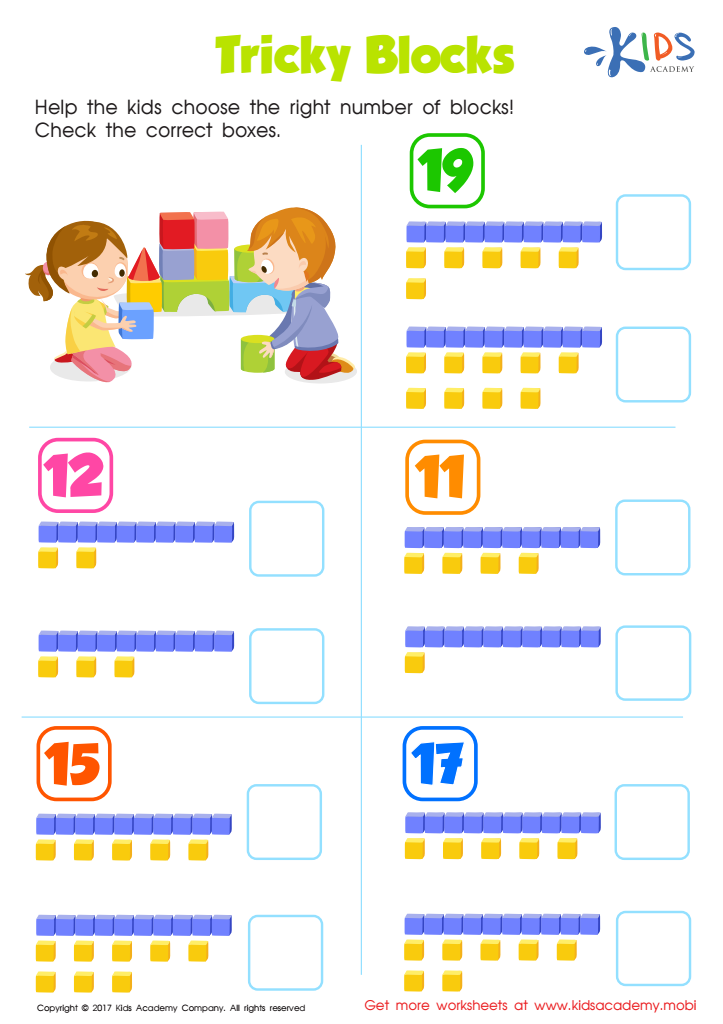

Tricky Blocks Worksheet
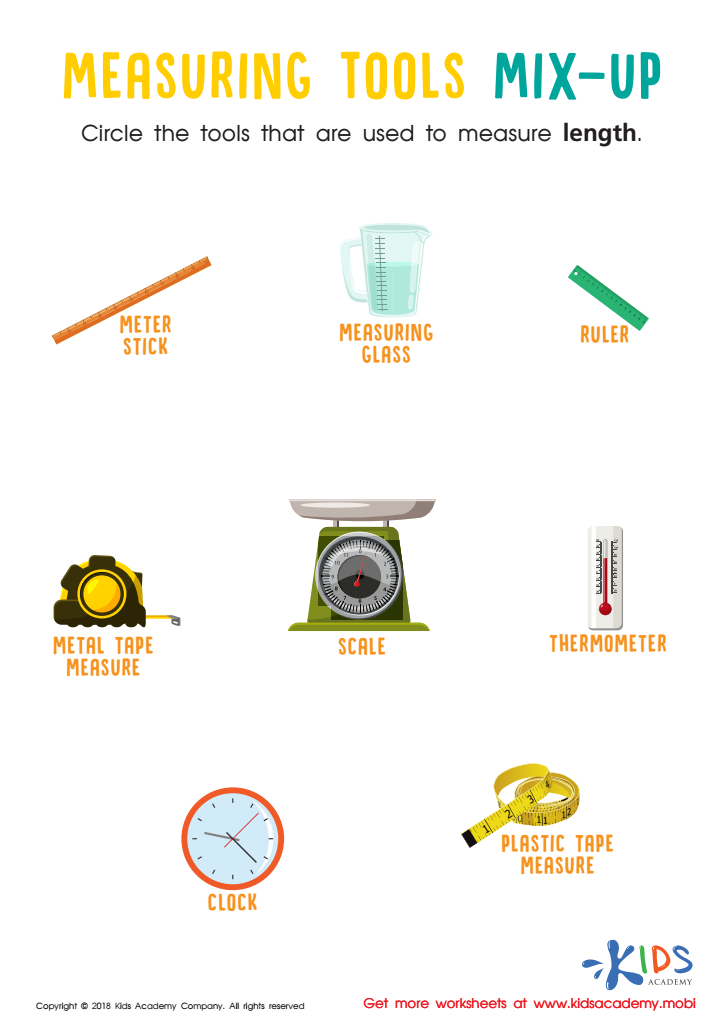

Measuring Tools Mix–up Worksheet
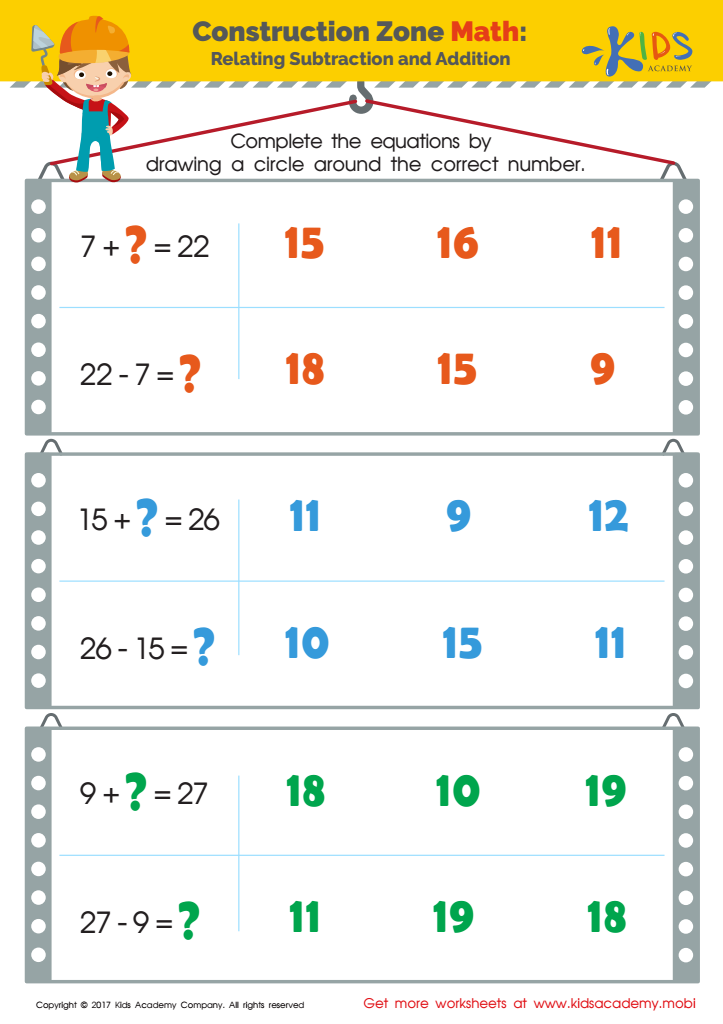

Related Addition and Subtraction Facts Worksheet
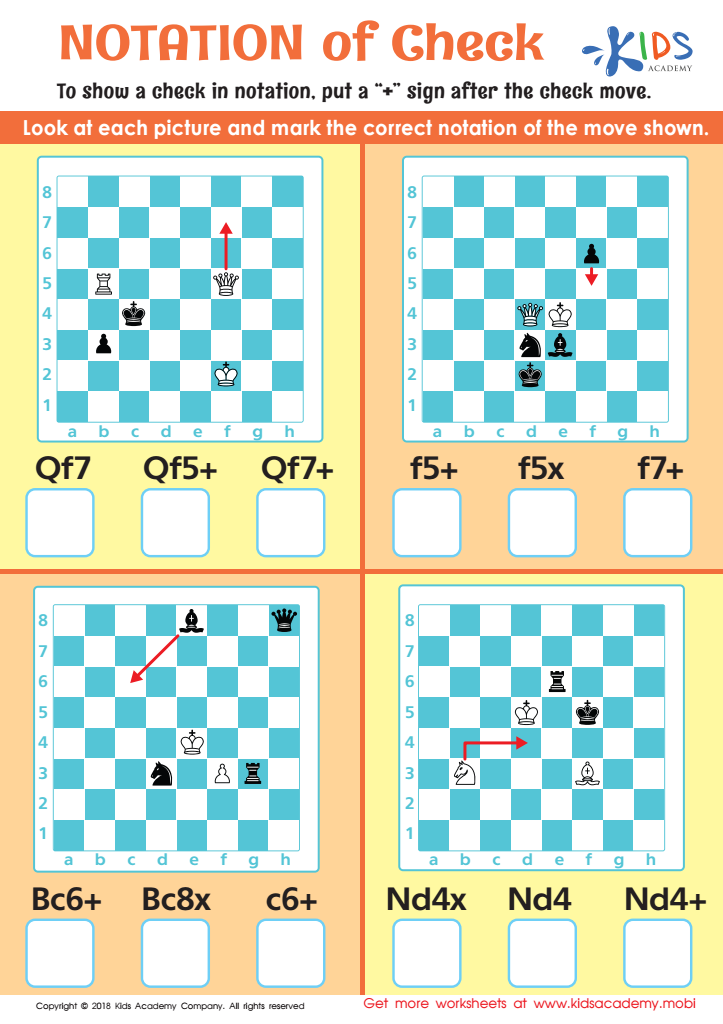

Notation of Check Worksheet
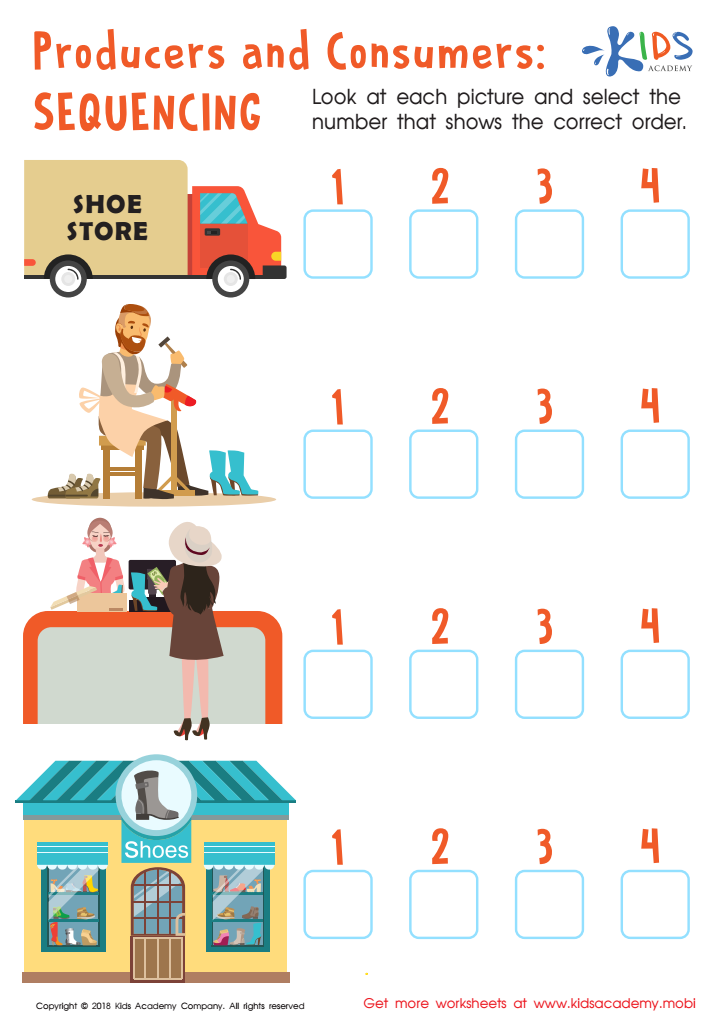

Producers and Consumers: Sequencing Worksheet
Developing logical thinking in children aged 6-7 is fundamental for their cognitive growth and problem-solving abilities. At this age, children are naturally curious, and fostering logical thinking helps nurture that curiosity into constructive learning. Engaging in logical reasoning builds a strong foundation for critical thinking, enabling kids to analyze situations, draw conclusions, and make informed decisions as they encounter new experiences.
Furthermore, this stage of development enhances their academic performance across subjects, particularly in math and science, where sequencing and pattern recognition are vital. By encouraging logical reasoning, parents and teachers equip children with tools to break problems down into manageable parts, fostering independence and resilience.
Additionally, promoting logical thinking supports social skills. Children learn to evaluate perspectives, empathize, and solve conflicts constructively. By instilling these skills early, parents and teachers help kids become thoughtful individuals who can communicate effectively and work collaboratively.
In summary, investing in the development of logical thinking in young children is integral not just for academic success but also for their overall personal growth, social interactions, and ability to navigate a complex world. It prepares them to face challenges with a reasoned mindset, contributing to their long-term emotional and intellectual well-being.
 Assign to My Students
Assign to My Students
